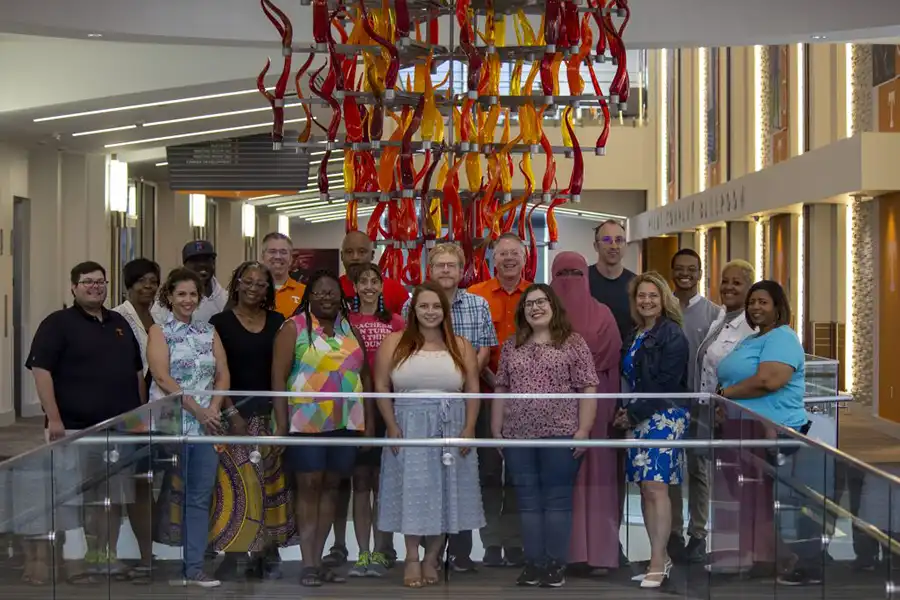Geographic Mobility as a Civil Right
Geographic Mobility as a Civil Right
Summer teaching institute explores geographic mobility as it relates to the African American freedom struggle

In July of 2022, the University of Tennessee, Knoxville, hosted a residential summer institute for K-12 educators from across the US, funded by a National Endowment for the Humanities grant (NEH). Participants explored the history of the Civil Rights movement through geographic mobility. The institute highlighted the central role of migration, transportation, and travel and tourism in structural racism and the fight for African American freedom and self-determination.
Participants attended lectures and lab exercises; participated in discussions; and learned methodologies and classroom activities from curriculum and content specialists. They also took field trips around Knoxville, Nashville, and Memphis as part of the institute’s commitment to place-based education.

“Through the institute, we offered a model of critical thought, instruction, and pedagogical application that supports ongoing calls for greater numbers of social studies educators to address power and inequity,” said Derek Alderman, professor of geography.
Alderman and colleague Joshua Kenna, associate professor of social science education in the UT College of Education, Health, and Human Sciences, received nearly $200,000 in funding to host the institute from the National Endowment for the Humanities “A More Perfect Union” initiative, which aims to promote a deeper understanding of American history and culture.

“In addition to having a well-rounded curriculum that utilizes several experts from the field and provides experiential learning opportunities, we’re also proud of our strong emphasis on building and fostering relationships with teachers,” Kenna said. “The goal is not achieved when they acquire the content, it is only achieved when we help them grapple with and overcome pedagogical and logistical hurdles so that they can teach this content in their classrooms.”
Workshops featured guest lectures and hands-on lessons from experts on geographic mobility, race and racism, oral history, digital mapping and the humanities, and pedagogy. The institute culminated with participating teachers developing and presenting curriculum projects and ideas for teaching about the role of migration, transportation, travel and tourism within the Black civil rights experience.
“Our hosting of this summer institute in Knoxville received high marks from participating teachers and NEH program directors. It further cements the University of Tennessee’s reputation as a national leader in teacher training and creating important synergies between the teaching of history, geography, and social justice,” Alderman said. “The university welcomed a brilliant group of K-12 teachers, many of whom are educators of color. They significantly advanced discussions of diversity and inclusion on our campus and taught many of the institute’s staff important lessons about the struggles currently facing the nation’s teachers.”
Read more about the UT initiative, Geographic Mobility in the African American Freedom Struggle, and the NEH grant award that supported this important work in the Department of Geography and Sustainability and the Department of Theory and Practice in Teacher Education at UT.
